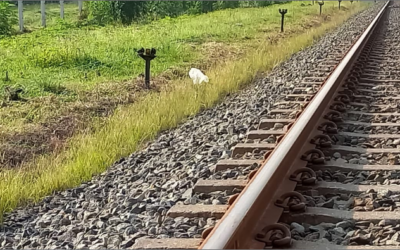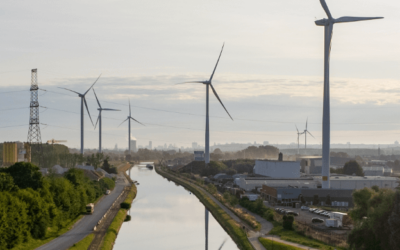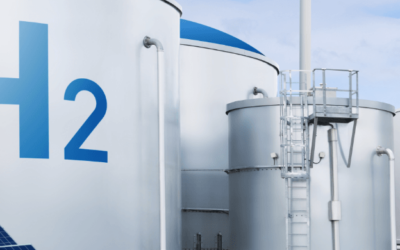An important step en route to more sustainable Dutch freight transport: the long-expected purchase grant for clean zero-emission trucks (AanZET) opens for applications on 9 May 2022. The final scheme differs in some respects from previous plans and announcements. This article provides more information about all the conditions, advantages and procedure.
Purchase grant for Zero-Emission Trucks (AanZET)
We wrote about the plans for the AanZET grant scheme in late 2021. The scheme forms an important addition to existing schemes, such as SEPP (for private individuals to purchase electric cars), SEBA (for emission-free company vehicles) and the new SSEB grant (for the purchase of clean and emission-free construction vehicles). The AanZET scheme makes it more attractive for enterpreneurs to invest in clean trucks: the grant reduces the difference in price between a ‘traditional’ diesel truck and a clean zero-emission truck.
Target group: who can apply for the AanZET grant?
The AanZET grant is suitable for Dutch enterprises that wish to purchase an N2 or N3 truck. The grant aims to provide an incentive to choose clean emission-free trucks with battery-electric or hydrogen-electric propulsion instead of a ‘standard diesel truck’. You can apply for a grant to purchase one or more trucks (up to 20). Not everyone is eligible for the AanZET scheme. The grant is only intended for companies and non-profit institutions (including foundations and hospitals). Private individuals and government agencies are not the target group and therefore cannot apply for this grant.
How much is the grant?
The grant comprises a contribution to the added costs of an emission-free truck compared with a diesel truck. The grant amount depends on three factors: 1) the type of vehicle; 2) the purchase price; and 3) the type of organisation purchasing the truck.
For a zero-emission N2 rigid chassis truck weighing 4,250 kg or more:
- large enterprises: the grant covers 12.5% of the purchase price (and up to 17,800 euros)
- medium-sized enterprises: the grant covers 19% of the purchase price (and up to 26,800 euros)
- small enterprises and non-profit organisations: the grant covers 25% of the purchase price (and up to 35,700 euros)
For a zero-emission N3 rigid chassis truck weighing up to 18,000 kg:
- large enterprises: the grant covers 15% of the purchase price (and up to 43,600 euros)
- medium-sized enterprises: the grant covers 21.5% of the purchase price (and up to 63,700 euros)
- small enterprises and non-profit organisations: the grant covers 28.5% of the purchase price (and up to 84,000 euros)
For a zero-emission N3 rigid chassis truck weighing 18,000 kg or more:
- large enterprises: the grant covers 16.9% of the purchase price (and up to 56,700 euros)
- medium-sized enterprises: the grant covers 24.3% of the purchase price (and up to 81,500 euros)
- small enterprises and non-profit organisations: the grant covers 31.7% of the purchase price (and up to 106,300 euros)
For a zero-emission N3 semi-trailer:
- large enterprises: the grant covers 20% of the purchase price (and up to 72,700 euros)
- medium-sized enterprises: the grant covers 28.5% of the purchase price (and up to 102,300 euros)
- small enterprises and non-profit organisations: the grant covers 37% of the purchase price (and up to 131,900 euros).
To clarify the above categories: an enterprise is medium-sized if it has under 250 employees, an annual turnover of no more than 50 million euros and/or an annual balance sheet total of no more than 43 million euros. If any of these variables is exceeded, the enterprise is considered large. A small enterprise has fewer than 50 employees and an annual turnover (or balance sheet total) of up to 10 million euros.
Most important grant conditions
Several of the most important grant conditions are listed below:
- The grant must be to purchase a type N2 or N3 truck (as described above). The truck must be fully emission-free and run only on an electric motor.
- The truck must be purchased new. The truck may be bought outright or based on a financial lease. In the case of the latter, the grant must be requested by the lessee (the company that will be offering the financial lease on the truck). For operational leasing, only the leasing company/lessor can apply for the AanZET grant.
- The grant recipient must retain ownership of the truck for at least four years (this will be checked based on the vehicle registration). The grant will be calculated based on the purchase price (excluding VAT) as included in the sale or financial lease contract.
- No firm commitments must have been entered into at the time of the grant application. There must be a provisional purchase or financial lease agreement (without irrevocable obligations) that was agreed on or after 1 January 2022 (not before).
Some additional advantages
In addition to the AanZET grant, there are also other benefits for companies that purchase an emission-free truck: the environmental investment allowance (‘Milieu-investeringsaftrek’ or MIA). You can use this to cover another portion of the additional costs. Companies that invest in additional charging or refuelling infrastructure on their own premises can also use the MIA scheme.
There are also other reasons to invest in a clean, zero-emission truck (and we’re not even talking about the environmental impact here). Because after a certain number of years of ‘positive incentives’ (such as the AanZET and MIA), negative government measures tend to follow. For instance, a ‘truck levy’ based on CO2 emissions is already being considered for the future.
Interested?
Applications for this first AanZET round of grants is possible from 9 May until 31 December 2022 (12 noon). You should be aware that the grants will be awarded by order of receipt and for as long as the annual budget lasts. This year’s budget amounts to 13.5 million euros.
More AanZET application rounds will follow in the coming years. The schedule is as follows:
- in 2023: from 2 January 2023 (9 am) to 31 December 2023 (12 noon)
- in 2024: from 2 January 2024 (9 am) to 31 December 2024 (12 noon)
- in 2025: from 2 January 2025 (9 am) to 31 December 2025 (12 noon)
- in 2026: from 2 January 2026 (9 am) to 31 December 2026 (12 noon)
- in 2027: from 4 January 2027 (9 am) to 8 May 2027 (12 noon)
The grant percentages and maximum grant amounts may be adjusted each year.


